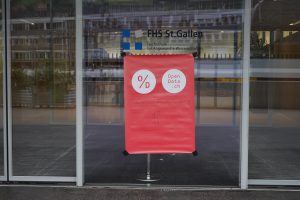044 #opendatach
Notes from last week's annual Swiss open data conference, the seventh time I have participated in this gathering of the local and international community of interest.
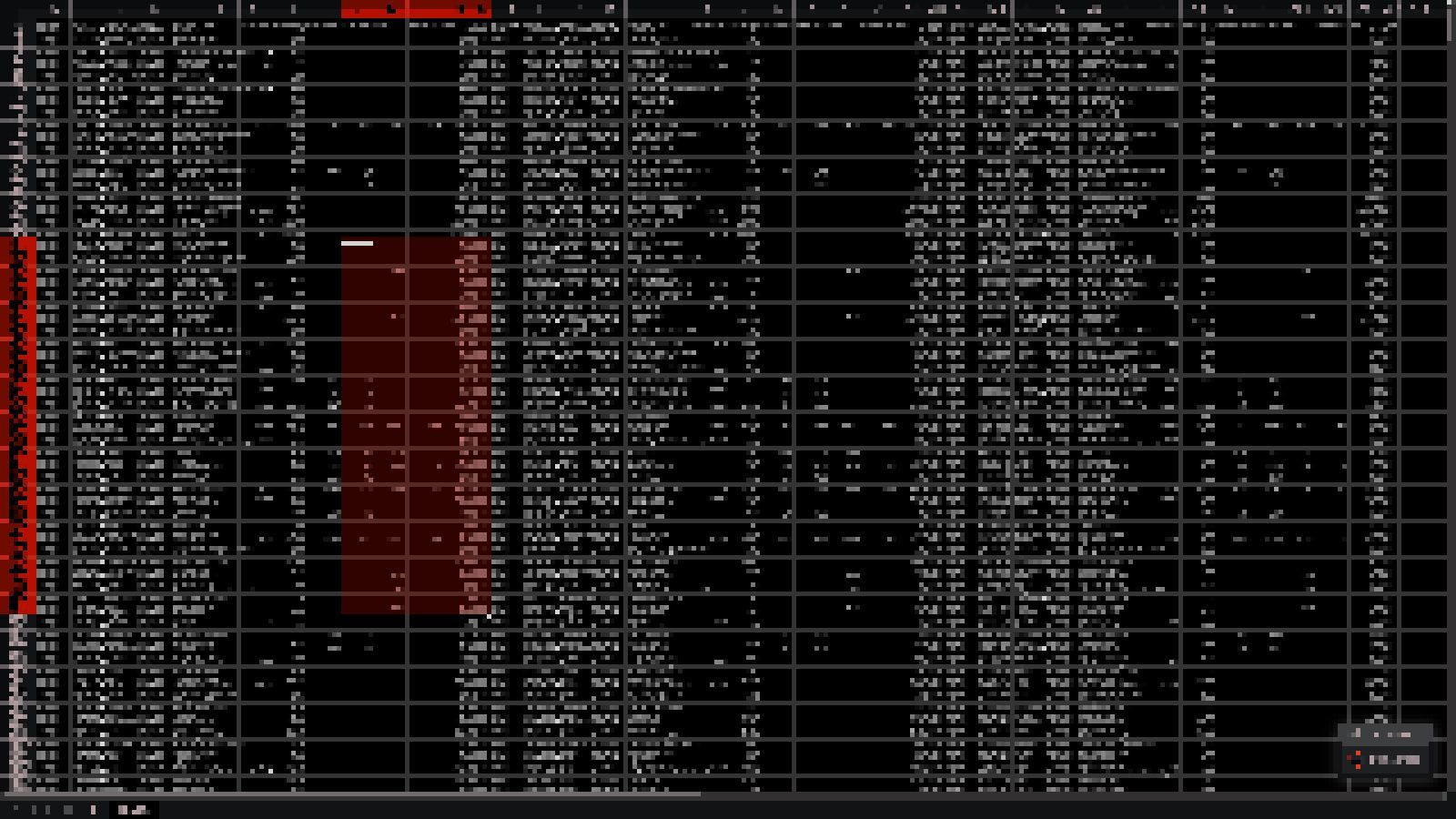
A few personal notes from last week's Swiss open data conference, the eight annual gathering (my seventh) of the local and international community of interest. You can find more coverage and links at Opendata.ch/2018.
The #opendatach conference was for some of us a 24 hour event, which started around 6pm on Monday when Rufus Pollock joined us in Zürich, to 6pm the following day at a revitalising post-conference apéro. A group of about 15-20 of us organizers and core contributors spent a balmy afternoon perched in the loft at the Impact Hub, debating the state of the nation, reviewing the recommendations of our Task Force, distributing and discussing the new book. A rather sleepless, penseful night later I was on an early train with Hannes Gassert. We talked about where the association was headed over tea, and reminisced about the day we met in 2011. Then arrived on site in St.Gallen, where the modernist University building was being rapidly transformed into our favourite habitat, a burgeoning centre for activism, critical thought and debate.
After quickly saying hello I set to work on the hacky corner of the event, an unconference showcase sponsored by the local IT community that featured 9 projects, submitted through an online platform (hack.opendata.ch running dribdat). Several of the project leads were attending the conference, and we were hoping the wall - next to the entrance to the main room where keynotes took place - would engender imaginative discussion through giving participants a chance to meet the makers of these innovative projects.
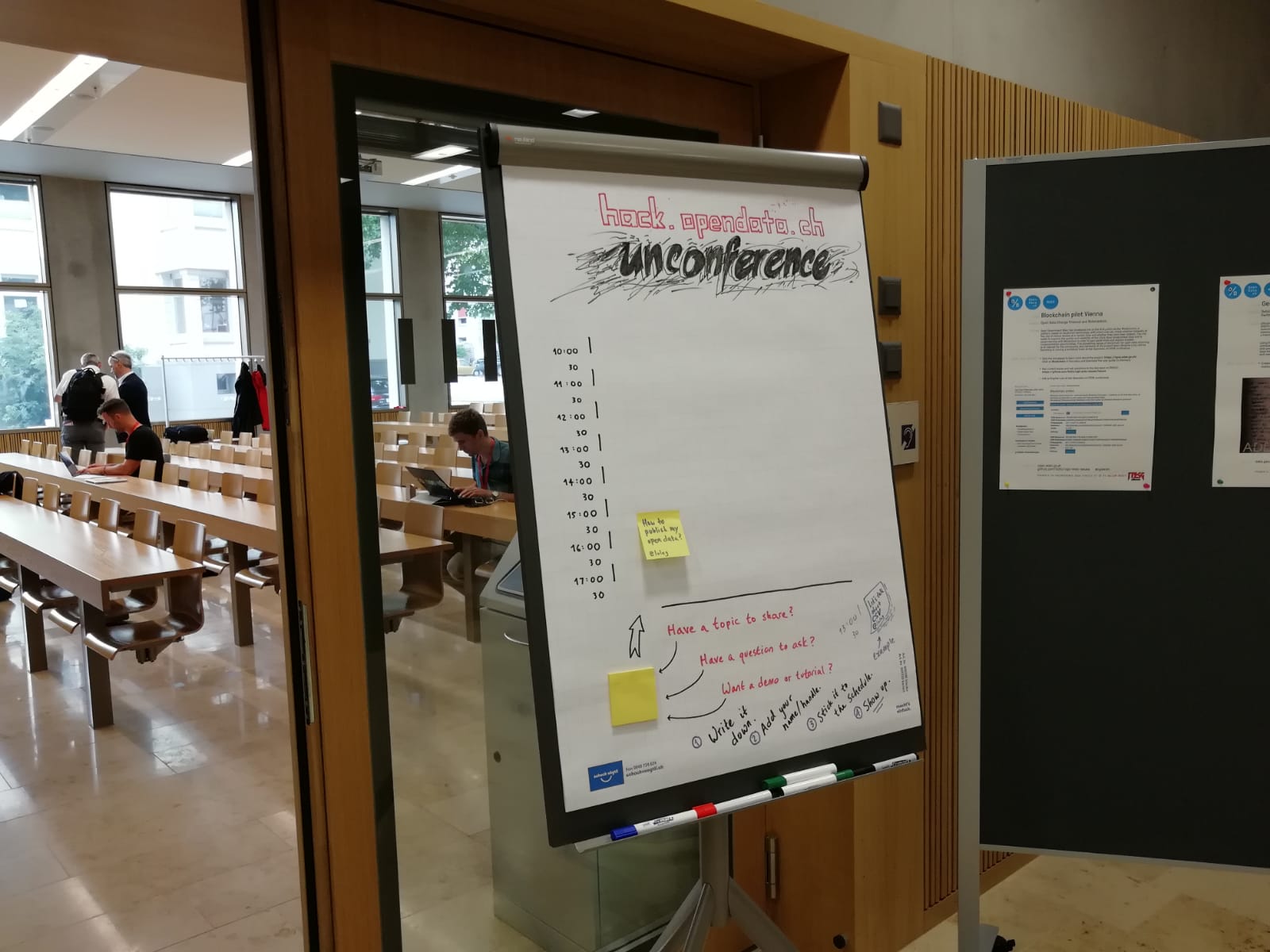
Photo credit: Ernie Deane, CC BY-SA 3.0
Most of the morning I spent quietly soaking in the great atmosphere, keeping track of all the discussion on social media, and posting some observations about the keynotes to Twitter in French (pour des fautes d'orthographe, cher/es lecteur/es, mes regrets). At lunchtime we had to prepare for the afternoon sessions, and I missed out (comme d'habitude) on the chance to spend as much time as I would have liked to talking with people. Or even to properly enjoy the food, which was, reportedly, délicieux.
Gruezi! Allegra! Bonjour! Ciao! Greetings from St.Gallen #OpenDataCH pic.twitter.com/AunqX2U52q
— E-0010-9370 (@sodacamper) July 3, 2018
My main input to the event was a short presentation on Open Science with Frictionless Data as part of a track which showcased four projects working with, or fostering the development and use of, open data for scientific purposes.
Marcel Salathé demonstrated the open data science challenge platform crowdAI (https://www.crowdai.org/) developed at EPFL, which connects data science experts and enthusiasts with open data to solve specific problems, through challenges. Oleg Lavrovsky spoke about the need of containerization formats for open data, and introduced Frictionless Data (https://frictionlessdata.io/) which addresses this issue through simple specifications and software. Donat Agosti spoke about Plazi (http://plazi.org/), addressing the need of transforming scientific data from publications, books, and other unstructured formats into a persistent and openly accessible digital taxonomic literature. Finally, Rok Roškar introduced the Swiss Data Science Center and its Renku platform, a highly scalable & secure open software platform designed to foster multidisciplinary data (science) collaborations (https://datascience.ch/renku-platform/).
It was a great privilege to be be part of this workshop, and I appreciated the learnings shared and eager discussions tremendously. The question came up of how many standardization initiatives it really takes, as well as whether and how improvements to the platform for data sharing really address the fundamental issues in science, and how the open data community can help improve access to high quality experimental data, reproducibility, and collaboration. We are following up on some of these questions already (GitHub).
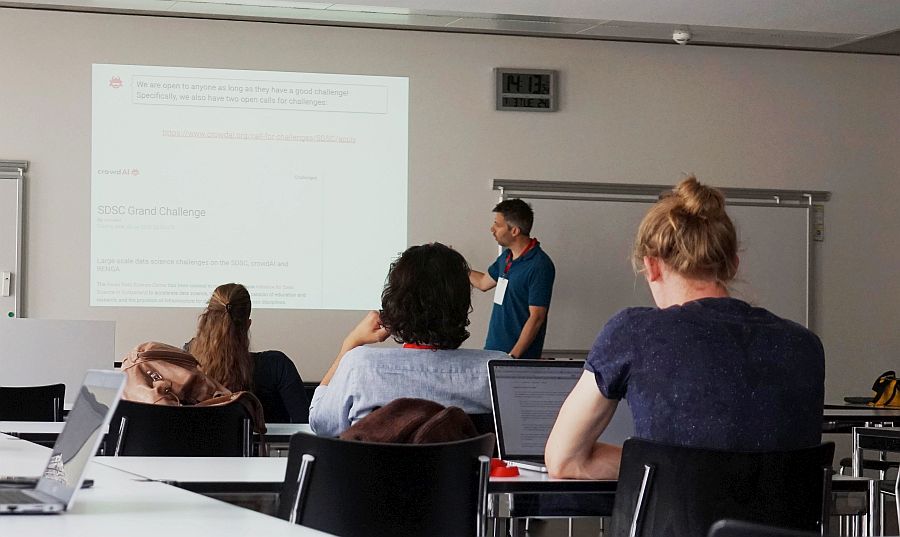
Photo credit: Ernie Deane, CC BY-SA 3.0
And then it was, finally, time to hand over the Open Data Student Award, a project that took months of preparation, three days of 3D printing, hours of nail-bitingly intense jury duty, and only 15 minutes allowed to sum it all up and hand. I've already written this up on the Opendata.ch announcement, but I do want to share a quick look behind the scenes here.
We first started talking about this project last fall, shortly after the Open Tourism Data Hackdays. The three of us - Prof. Keller, A. Amsler, and I - have had by now lots of experience supporting students in their work with open data, and we were eager to increase the interest and stimulate idea sharing within higher education.
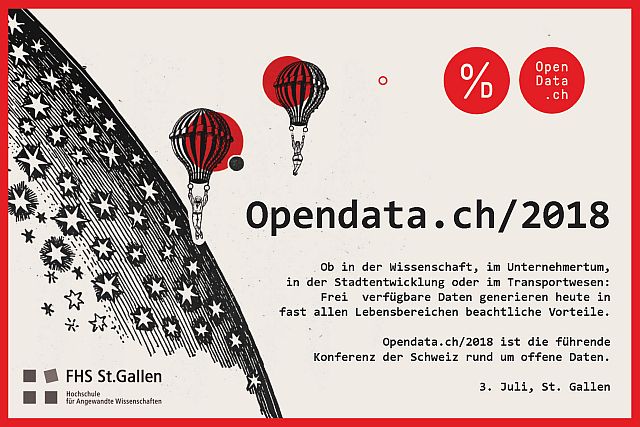
I used this opportunity to make a media project, sketching and modelling concepts for the trophy became a regular activity on the side, taking months before we were finally happy with the design. In the end, it was all under my nose: the hot air balloon (we're not sure who made the original drawing) on our conference material representing the magnificent vistas and extraordinary challenges of the pioneering side of the movement - where I hope the next generation of activists will be bold enough to venture.
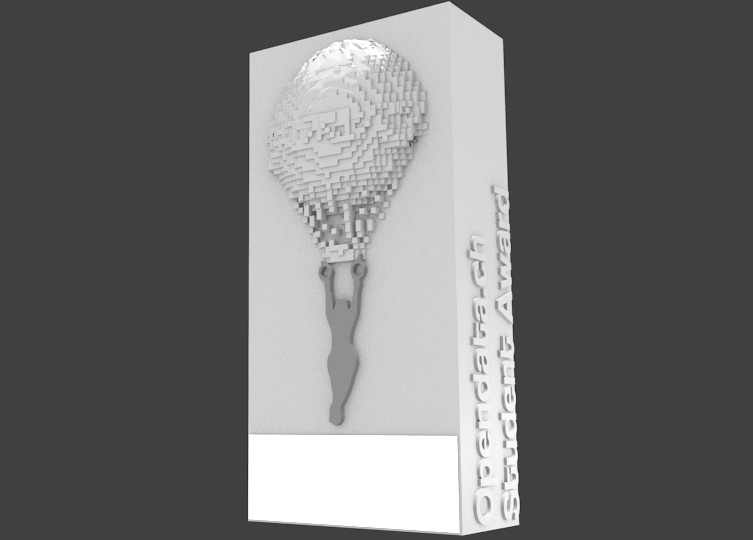
The sources (CC BY-NC-SA 4.0) of the trophy and animation are at github.com/loleg/opendata-student-award. If you'd like to hear some fitting audio, there's a great band that raps in Romansh called liricas analas.
Thank you to everyone who helped make the conference happen through tireless effort - Nikki Böhler especially, to our partners and sponsors, and the rest of the gang. I really hope that we will be back again together next year. In the meantime, our work is cut out for us. I leave you with a few more impressions and delightful commentary from social media.


